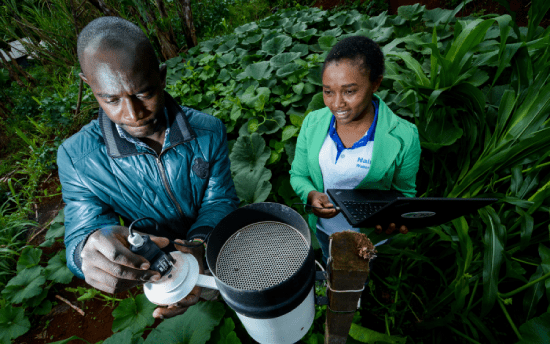Africa’s Climate Tech Scene Lags Despite USD 3.4 B Funding In 5 Years

Despite a substantial increase in climate tech funding, there’s a conspicuous gap in meeting the actual financial needs for climate action in Africa and the private sector’s contribution to climate finance remains notably low, a new report suggests.
The “Investing in Climate Tech Innovation in Africa” report delves into the burgeoning climate tech sector in Africa, catering to the interests of investors, innovators, and stakeholders invested in the continent’s future. With Africa at the forefront of climate change impacts, understanding and supporting its climate tech sector is crucial, asserts the report’s authors, The Catalyst Fund, a pre-seed fund and accelerator backing tech startups seeking to improve the resilience of underserved, climate-vulnerable communities in Africa.
“Our findings reveal both the challenges and the immense potential of this burgeoning sector. This report is not just a collection of data; it’s a critical lens into the future of climate resilience in Africa,” the authors emphasise.
Catalyst Fund, over the past year, witnessed a surge of enthusiasm with more than 3,000 pitch decks from climate tech innovators seeking investments to propel their ventures in Africa. Employing a comprehensive analysis combining this proprietary pipeline with data from Africa: The Big Deal, co-founded by Maxime Bayen, the Catalyst Fund’s Operating Partner, the report assesses the state of climate innovation on the continent. It unveils insights into sectors, technologies, target demographics, geographical landscapes, founder attributes, funding trends, and pathways to exit for climate ventures in Africa.
However, amid the influx of proposals, nearly 90 percent of the pitch decks were disqualified due to lacking a focus on either Africa or climate-centric solutions. Of the approximately 300 decks that remained, a notable trend emerged: agriculture and energy startups constituted the core of entrepreneurial activity, with agriculture dominating earlier stages.
While 40 percent of solutions in the pre-seed pipeline centered on agriculture, data from Africa: The Big Deal revealed that a substantial 75 percent of funding for climate tech startups in 2022 gravitated toward energy and water startups. Meanwhile, other sectors like food waste, insurtech, waste management, and carbon credits, while diverse, accounted for a mere 25 percent of the funding raised to date.
Despite the robust growth in funding for climate tech ventures compared to other sectors, the current financial backing falls short of the substantial requirement for African countries to meet their 2030 climate goals. The report underscores the necessity for a monumental increase in climate financing, estimating a leap from the existing USD 30 B annually to an astounding USD 300 B, necessitating contributions from both public and private sectors.
A notable issue is the underrepresentation of private sector contributions, comprising a mere 14 percent of the total climate finance. Merely around 100 deals were counted among climate tech startups in Africa, largely due to the dearth of climate-focused investors on the continent. However, a glimmer of hope emerges as funding garnered by climate-related startups in Africa soared to USD 3.4 B between 2019 and 2023, constituting nearly 60 percent of the total funding invested in the more mature fintech sector.
The report emphasizes not only the need for increased funding but also the importance of diversified funding sources, including grants, venture debt, equity, blended and concessional finance, and local capital. Alarmingly, only 23 early-stage funds focused on climate in Africa were identified, with several yet to make their inaugural investment. The struggle for grant capital is evident, with a mere 87 climate startups in Africa receiving grant funding over the past four years.
A particularly concerning observation revolves around the protracted duration African startups require to secure venture capital compared to their counterparts in other ecosystems. This lag, exacerbated by climate tech startups needing an additional year on average, underscores the urgency for increased patient capital.
Acknowledging the potency of venture capital for scalable innovation, the report stresses the imperative need for diverse financing avenues to fortify resilience and adaptive capacities across the continent. Furthermore, with a meagre 10 exits in the climate tech space, all confined to the energy sector, substantial strides are imperative before commercial capital enters at scale.
The report concludes by championing the development of multifaceted capital sources, crucial for nurturing a diverse spectrum of enterprises that are pivotal for expediting and scaling climate action across Africa. Proposals for blended finance approaches take centre stage, aiming to allure more private funding into the sector, thus mitigating risks for entrepreneurs and investors alike.
This analysis, part of a philanthropic endeavour supported by FSD Africa, UNIDO, GEF, and JPMorgan Chase & Co., extends understanding of the sector’s dynamics to fellow investors, innovators, and ecosystem players in the African climate tech sector. These insights are captured with a view to catalysing progress within the climate resilience ecosystem, underlining the urgency for concerted efforts and diverse financial mechanisms to foster a sustainable African tech landscape.
Featured Image Credits: Farming First